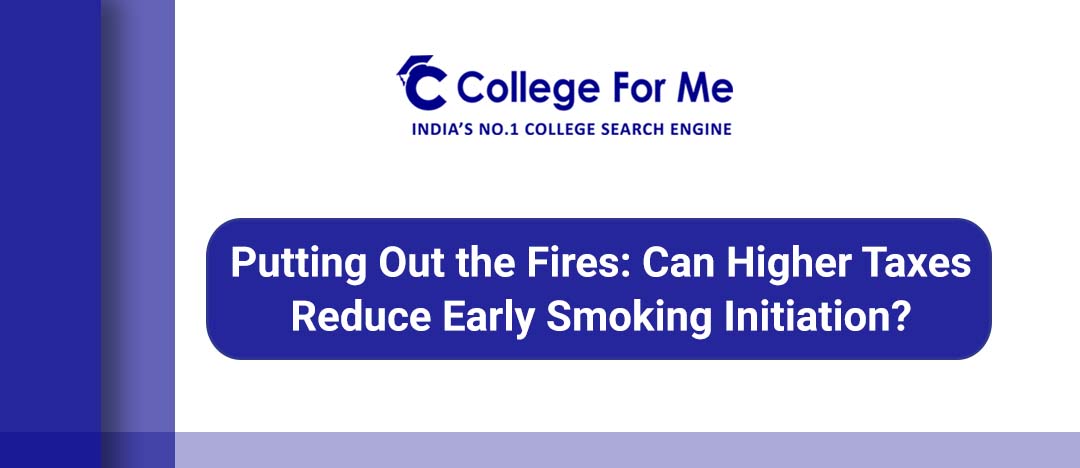Career Scopes Of A B.Tech. Student
There is a high demand for B.Tech. degree holders in the private sector, yet, there is also the opti...

Smoking remains a significant public health concern, with dire consequences for individuals and societies alike. Initiating smoking at a young age not only increases health risks but also sets the stage for a lifelong habit that can be incredibly challenging to break. As governments and health organizations seek effective strategies to curb smoking initiation among youth, the question of whether higher taxes can play a role in reducing early smoking onset becomes paramount. This article explores the potential impact of higher taxes on deterring young people from picking up the habit and the broader implications for public health.
The Youth Smoking Challenge
Smoking initiation during adolescence is a pivotal issue due to the long-term health implications and the difficulty of quitting once addicted. Statistics show that a vast majority of adult smokers started using tobacco products before the age of 18. Early exposure to nicotine not only increases the risk of addiction but also heightens susceptibility to a range of health problems, including respiratory issues, cardiovascular diseases, and various cancers.
The Role of Taxes in Tobacco Control
Higher taxes on tobacco products have consistently proven to be an effective tool in reducing smoking rates, particularly among young people. The underlying principle is simple: as the cost of tobacco products rises, the financial barrier to entry increases, dissuading potential new smokers, especially those with limited disposable income.
Key Points Supporting Higher Taxes:
Successful Case Studies
Several countries have successfully reduced smoking rates among youth through taxation strategies:
Balancing Act: Considerations and Challenges
While higher taxes can be an effective tool in discouraging early smoking initiation, there are some considerations:
Conclusion
Reducing early smoking initiation is a critical step toward improving public health and saving lives. Higher taxes on tobacco products have demonstrated their potential to act as a deterrent, especially among young people who are more sensitive to price changes. While taxation is not a standalone solution, it can be a crucial component of a comprehensive tobacco control strategy. By implementing higher taxes alongside education, regulation, and cessation support, societies can make substantial strides in putting out the fires of early smoking and creating a healthier future for the younger generation.

There is a high demand for B.Tech. degree holders in the private sector, yet, there is also the opti...

If you are looking for a bright and prospective career, then getting a B.Tech. in CSE must be under ...
Comments (0)